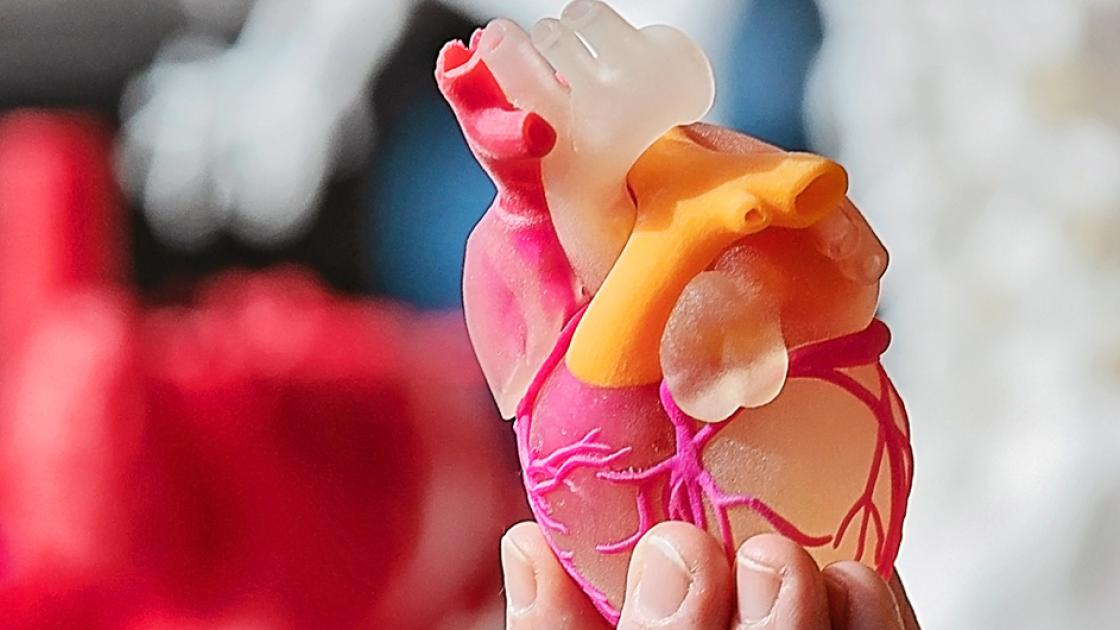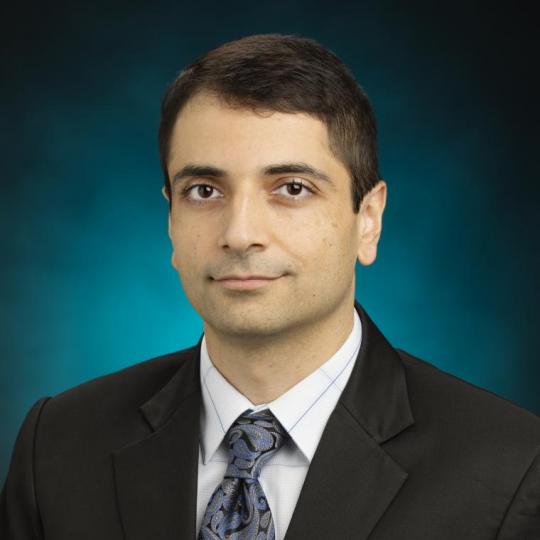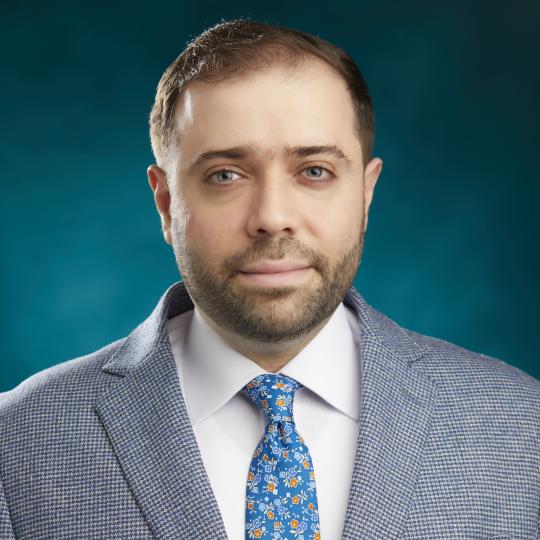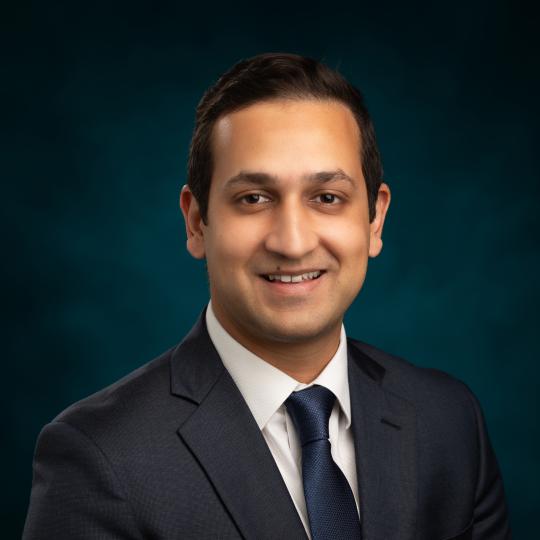
Valvular Heart Disease
Overview
Valvular structural heart disease occurs when the valves of your heart do not function properly. Your heart has four valves that work together to maintain one-way blood flow through your heart.
SIU Medicine structural heart disease specialists treat patients with structural heart disease using medicines and minimally invasive catheter based procedures.
Patients are seen in a dedicated integrated valve clinic staffed by an interventional cardiologist, a cardiac surgeon and specialized nurses to facilitate a comprehensive consultation with patients and their families to discuss all available options including transcatheter and surgical options explaining pros and cons of various options.
At SIU Medicine, we offer several valvular structural heart disease treatment options:
1. In our Multidisciplinary Valve Clinic in conjunction with a cardiac surgeon, we see patients with valvular heart diseases such as aortic stenosis or mitral regurgitation. For each condition we offer treatment by minimally invasive commercially available devices (TAVR and MitraClip, respectively) or open heart surgery, if deemed more appropriate.
2. In our Heart Brain Clinic, we offer consultation for patients with prior history of strokes in certain patients in whom the reason for stroke after extensive evaluation is not clear. In conjunction with a vascular neurologist we offer percutaneous closure of the patent foramen ovale (PFO) for eligible patients.
3. In our Hypertrophic Cardiomyopathy Clinic we follow patients with hypertrophic cardiomyopathy longitudinally offering them various services such as multimodality imaging for ongoing surveillance, genetic testing, medical therapy, or invasive therapies when needed
4. Finally, we also offer Watchman device consultation for left atrial appendage closure for patients with atrial fibrillation who are at risk of stroke but cannot safely take full dose oral anticoagulation.
5. Other structural heart defects such as atrial septal defects are also evaluated and treatment can be offered via percutaneous methods or surgical referral.
Causes
A variety of conditions can cause heart valve disease(s), including:
- Birth defects involving heart valves
- Coronary artery disease
- Heart muscle disease
- Heart attack
- Hypertension
- Rheumatic fever as a child
- Advanced age
Symptoms
- Shortness of breath
- Heart murmur (abnormal sound)
- Tiredness
- Dizziness
- Fainting
- Swelling in feet, ankles, legs or abdomen
Signs
- Heart murmur (abnormal heart sound on clinical examination with a stethoscope)
- Admission to hospital with syncope, chest pain or heart failure
Types
- Regurgitation - Occurs when the heart valves flaps don't close properly, causing blood to leak backwards in your heart. This commonly occurs due to abnormality of valve leaflets or valve support structure including bulging back of leaflets, a condition called prolapse. This may occur in any valve and includes: Mitral Regurgitation, as well as, Aortic Regurgitation
- Stenosis - Occurs when valve flaps (leaflets) of the heart become thick or stiff, causing the valve flaps to fuse together. This results in a narrowed valve opening and reduced blood flow. Two important stenotic valvular heart diseases include Aortic Stenosis, and Mitral Stenosis
Care for Valvular Structural Heart Disease at SIU Medicine
Our team of board-certified specialists offer a full range of treatments and diagnostic tests for many conditions, including:
Aortic Stenosis:
- Full diagnostic workup
- Multispecialty consultation in a team setting
- Valve replacement using commercially available & FDA-approved Transcatheter Aortic Valve Replacement (TAVR) devices – both balloon expanding and self-expanding TAVR valves are offered.
- Balloon Aortic Valvuloplasty (BAV) as a bridge to TAVR is offered for select patients. BAV is a procedure by which a very small & narrow, hollow tube (catheter) is inserted into a blood vessel in the groin artery and guided through the aorta into the heart. Once the catheter (tube) reaches the valve, doctors inflate a balloon until the valve's flaps are pushed open to relieve the valve stenosis. This is usually a temporary solution until a more definitive therapy can be offered.
Aortic, Mitral and Pulmonic Valvuloplasty: a procedure by which a very small, narrow, hallow tube is inserted into a blood vessel in the groin and guided through the aorta into the heart. Once the catheter (tube) reaches the valve, doctors inflate a balloon until the valve's flaps are pushed open.
Coronary Artery Fistula Closure: a procedure which repairs an abnormal connection between one of the coronary arteries and a heart chamber or another blood vessel.
Left Atrial Appendage Closure: a minimally invasive procedure that reduces the risk of stroke due to atrial fibrillation, or Afib.
Paravalvular Leak Closure: a special catheter is used to place a closure device around the leak.
Alcohol Septal Ablation: a non-surgical option to treat abnormally thick heart muscle
Patients may be prescribed additional heart medications, like nitrates for chest pain or a statin to lower cholesterol. Your cardiology team will work with you to find the best treatment plan.
Our providers
Why SIU
Continually learning
With a focus on continual improvement, our doctors take the time to research, study and innovate to provide the latest treatments for our patients.
Patient-first experience
Our care ranges from primary care physicians to specialists and sub-specialists who have advanced training. We're here for you when you need us.
Breakthrough tech
Continually teaching the next generation of doctors, our physicians use the latest developments in procedures and technologies for our patients.



